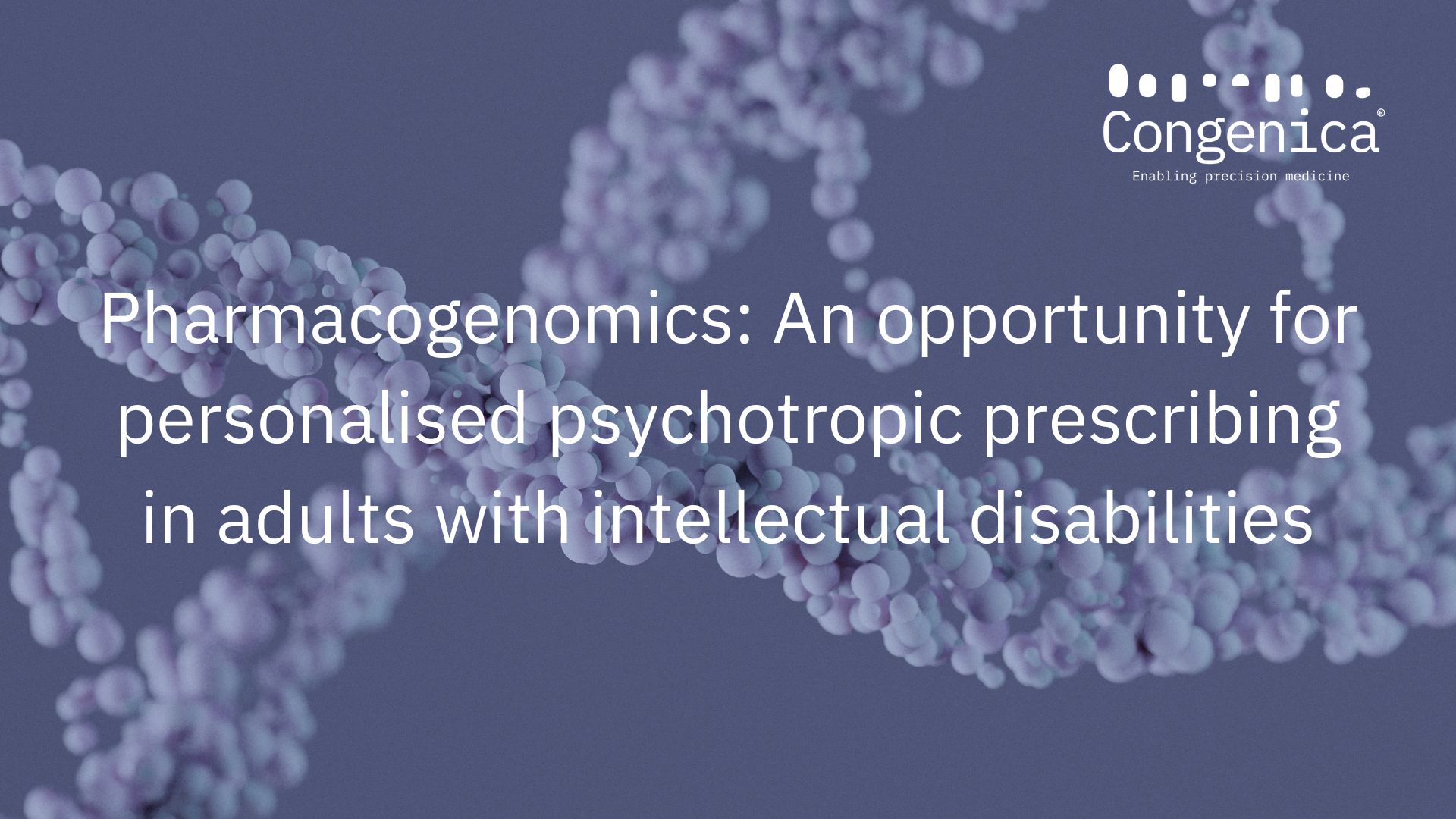Pharmacogenomics: An opportunity for personalised psychotropic prescribing in adults with intellectual disabilities
In our most recent peer-reviewed publication, “Pharmacogenomics: An opportunity for personalised psychotropic prescribing in adults with intellectual disabilities”, Professor Rohit Shankar MBE FRCPsych, Consultant in Adult Developmental Neuropsychiatry Professor in Neuropsychiatry, University of Plymouth Medical School and his collaborators explored how our genetic make-up influences responses to medication. In addition, they investigated how genetic information can be used to improve the selection, as well as dosage, of specific medication, resulting in fewer side-effects and serious negative outcomes for patients. This collaborative publication looks specifically at the use of psychotrophic medication in the context of people with intellectual disabilities.
Dr Charles Steward, Patient Advocacy and Engagement Lead at Congenica and co-author of the report said: “The opportunities that genomics is now providing are not limited to purely diagnostics for a genetic disease. As our paper discusses, we now have the opportunity to investigate our genomes to provide answers to which medications are best suited to our genetic make-up. And, just as importantly, which medications are likely to result in serious side effects, and therefore avoid. While pharmacogenomics has typically been carried out independently to genome sequencing, such information can now also be carried out at the same time as diagnostic Whole Exome Sequencing (WES) and Whole Genome Sequencing (WGS), potentially resulting in faster results and better medication for patients as well as less cost to healthcare providers”.
Senior author, Professor Rohit Shankar MBE, said “There is significant evidence to suggest people with intellectual disabilities are susceptible to significant psychotropic harm (especially off-licence prescribing) which is also associated in many instances with premature mortality. There is a need to revisit the current impasse of how to unburden the historic psychotropic over prescribing alongside the challenges of managing the ongoing psychiatric and behavioural issues in this population. We hope our publication will ensure scientific focus in this area includes those with intellectual disabilities and not inadvertently exclude them as has been the case often in the past”.
“Pharmacogenomics: An opportunity for personalised psychotropic prescribing in adults with intellectual disabilities” is published online in BJPsych Open.
A desire to improve the lives of people living with rare and inherited diseases is central to everything we do at Congenica. To find out more about our Patient Advocacy and Engagement work, please visit our website.

